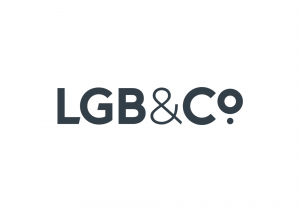What is the Enterprise Investment Scheme?
Written by Megan Dempster, February 2023
The Enterprise Investment Scheme (EIS) was introduced by the government in 1994 to help smaller UK companies conducting a qualifying trade attract investment. This was a significant initiative that expanded on the ground-breaking Business Start-Up Scheme (1981) and the Business Expansion Scheme (1983), which had provided limited relief for investment in both new and existing trading companies. Between 2020 and 2021 the enterprise investment scheme association (EISA) reported that 3,755 companies raised a total of £1,658m of funds under the scheme.
In the last 27 years the scheme has been invaluable in delivering private capital funding to early-stage businesses, and in particular those knowledge-intensive companies focused on innovation. As such it has become a true cornerstone of Britain’s innovation ecosystem which is critical to the development of the companies that will power the economy of the future. It represents a genuine competitive advantage for the UK, which has become one of the world’s best places to start a company as a consequence.
By providing compensation to investors willing to risk their capital to support growth companies, the government is encouraging a vibrant entrepreneurial economy. It is important though for investors that they fully understand the tax reliefs available to them, which we have summarised below. Please note that the ability to benefit from this scheme will depend on each investor’s own circumstances and that investors should always seek advice from their tax advisor before making an investment decision.
Income tax relief
Income tax relief of up to 30% can be claimed on EIS-qualifying investments. For an individual investing £100,000, it may be possible to claim up to £30,000 relief from their income tax bill. This can be claimed against the investor’s income tax bill for the year in which they made the investment, or can be carried back to the previous tax year’s bill.
Investors are required to hold the shares for at least three years from the date of issue, and must have sufficient income tax liability to make the claim. The company must also retain its EIS-qualifying status for the full three years (although it might have used up its issuing capacity).
Tax-free growth
Assuming the shares are held for at least three years, and a claim for income tax relief when the shares were purchased was made, any capital gain made on the shares at the point of disposal will be free from capital gains tax (CGT).
Loss relief
If the shares are disposed of at a loss after three years, the investor can offset this loss, net of the income tax relief received, against an income tax or capital gains liability. Similar treatment is available for companies which are liquidated before the three years are up.
The amount of loss relief available is calculated by multiplying the net loss (I.e the original investment amount minus the upfront EIS income tax relief received minus any proceeds on disposal) by the investor’s income tax rate.
Inheritance tax relief
Although Business Relief is a separate tax benefit from EIS, it is generally true that an EIS-qualifying investment will qualify for Business Relief after a holding period of two years. This means that these holdings can be left to beneficiaries free from inheritance tax, as long as they have been held for at least two years at the time of death, which at a 40% inheritance tax rate is indeed very attractive.
Managing EIS Investments
It is important that investors understand that the risk of making a loss in each investment remains, although the net loss can be mitigated by the tax benefits available and by achieving tax-free returns on the performance of exceptional investments. This means that investors should plan their portfolio allocations carefully and focus on the quality of business propositions and management teams rather than the tax benefits of making an individual investment.
At LGB Investments we look for EIS-qualifying investment opportunities that fit into our four core investment themes; Digitisation, Decarbonisation, Future of Healthcare and New Age Consumer. We assess all companies against our investment template which is focused on IP and knowledge-intensive companies which operate in a niche market where significant scale can be achieved.
Liquidity and length of investment term are important considerations. Although we will support privately owned companies, our focus is mainly on more developed AIM-quoted companies which have already received significant validation and will have a broker who provides research and a Nomad to ensure corporate governance. Another significant advantage of quoted companies is that there is some secondary liquidity in the shares, compared to private companies where the timing of an exit is very uncertain.
Our network of private investors, family offices, institutional investors and wealth managers will be invited to meet the company’s management team directly where possible. Once an investment has been made LGB will monitor the company’s progress and report to investors on a regular basis.
Conclusion
With such a long track record for the EIS and the large number of companies utilising it, HMRC and other government bodies can manage the scheme to help investors achieve satisfactory returns over time. Dynamic small companies today can become the enterprises of tomorrow. If you would like to learn more about EIS-qualifying investment opportunities with LGB please contact us to discuss.
An investors eligibility for the above tax relief will depend on the individual circumstances of both the investor and the company in which the investment has been made. More information on the tax reliefs related to EIS can be found on HMRC’s website. Please note these tax reliefs may be subject to change in the future. Individuals at LGB & Co. Limited are not qualified to give tax advice and the above should not be treated as tax advice. Please obtain independent tax advice regarding the availability of any tax reliefs before making any investment decisions.














